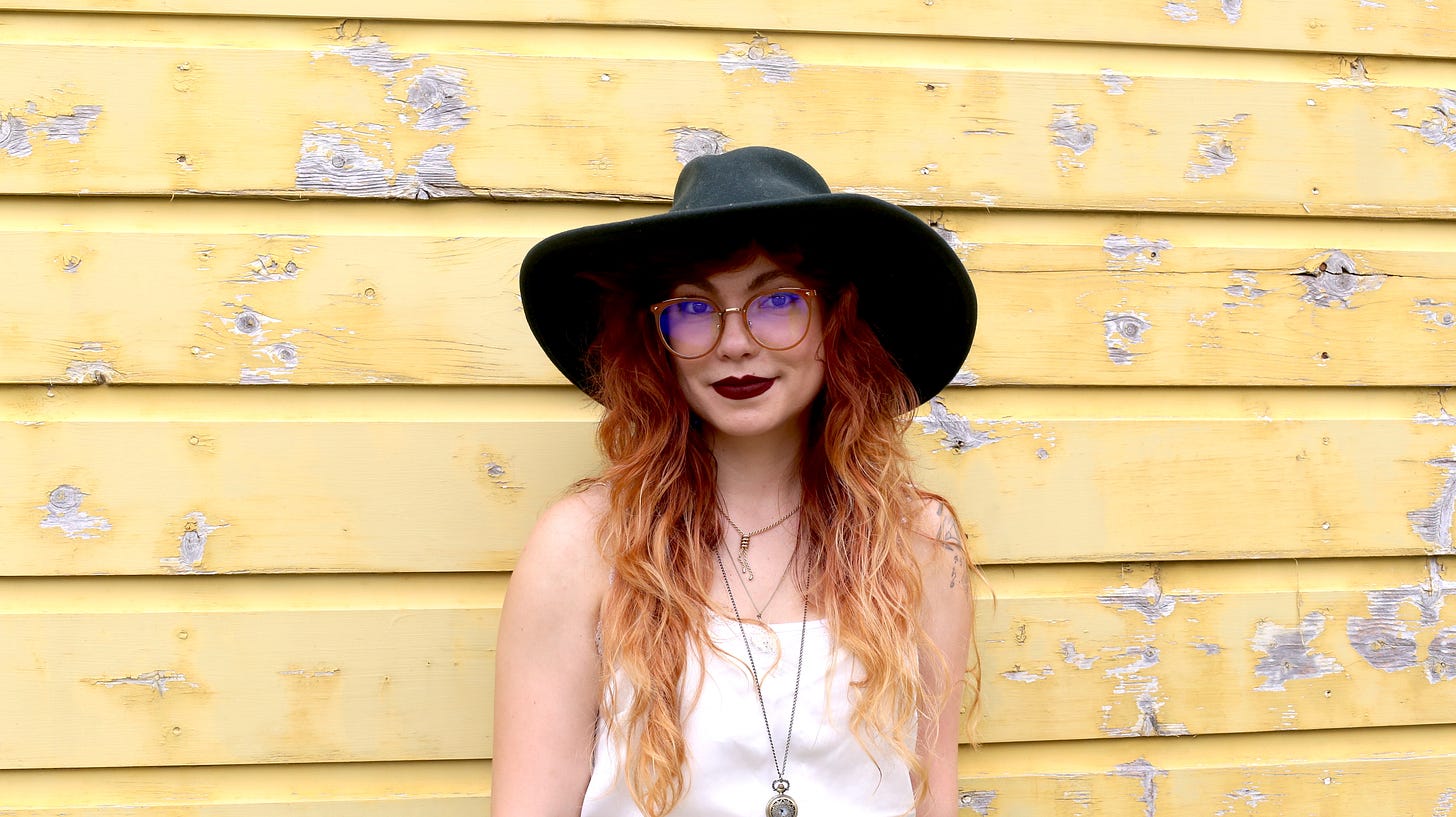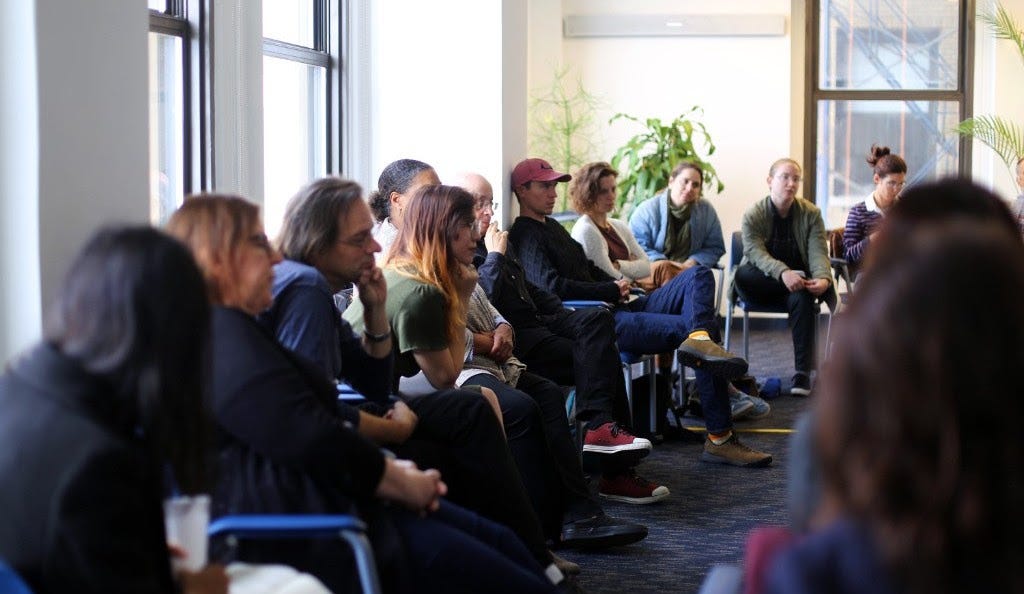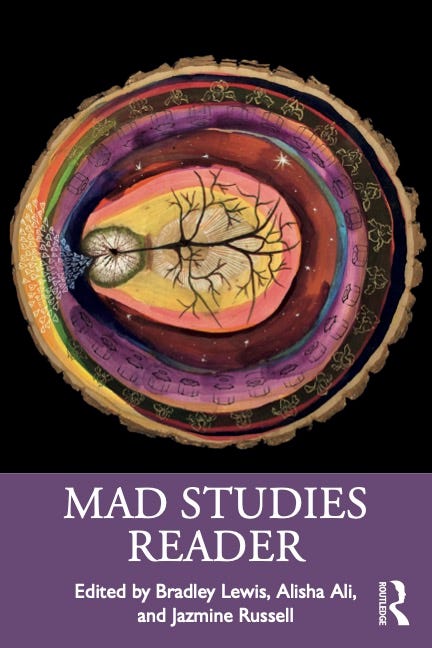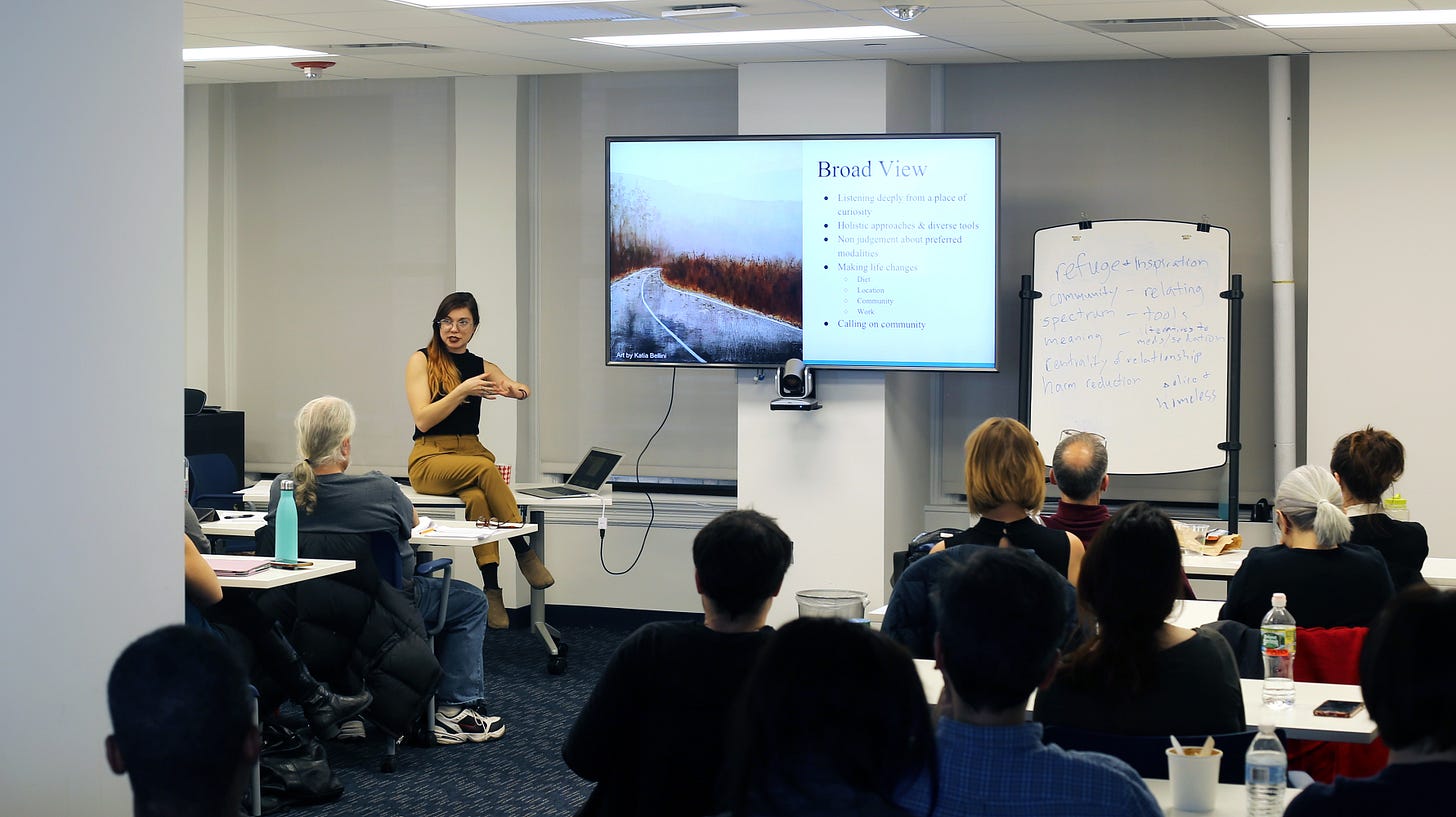Hi there, I’m Jazmine Russell
I’m a mental health educator, scholar at the intersection of critical psychology, mad studies, & neuroscience, writer, and trauma-informed breathwork practitioner.
I’ve held many roles within and outside the mental health system working mostly with psychosis survivors, and learned just how much there is to UN-learn about how we approach mental health in research and practice. For the last 10 years I’ve been endlessly curious about the personal and societal conditions that create illness and health, the process of transformation, and how different people across disciplines can work together to reveal the mystery and depth of this loopy and complex relationship we call the mind and body (hopefully, we’ll have better language for it someday).
My Story
My work is based first and foremost on my own lived experiences. I’m a complex trauma survivor of childhood sexual abuse, an experience that among other factors led to a 3 month long psychosis in my early 20s exacerbated by an undiagnosed autoimmune disease. Psychosis wasn’t the problem, it was the warning sign of much deeper psychological and physiological harms to my being. It was also transformative, life-changing, healing, a spiritual experience, a call to action, among many other things. It allowed me to later support other psychosis survivors, and understand the mind-body-society interaction inherent to such experiences. It also showed me what was deeply wrong about we deal with crises as a society.
My Work:
DEPTH WORK PODCAST:
I started the Depth Work Podcast in 2022 where I interview clinicians, researchers, nutritionists, healers, activists, and people with remarkable stories to garner wisdom from their lived and professional experiences. We talk about the realities of dealing with chronic illness, mental health concerns, institutionalization, policy, philosophy of science, somatics, spirituality, ancestry, trauma, and societal change. You can find all episodes here, and listen to them on any podcast platform.
THE INSTITUTE FOR THE DEVELOPMENT OF HUMAN ARTS:
In 2016 I co-founded a transformative mental health training institute : The Institute for the Development of Human Arts, which has become an amazing international community of clinicians, researchers, activists, and lived experiencers dedicated to system-wide change in mental health. We recently launched our biggest most comprehensive training called the Transformative Mental Health Core Curriculum with over 50+ experts from around the world. You can see our trainings and join the community here.MAD STUDIES BOOK:
I co-edited and wrote a chapter of The Mad Studies Reader: Interdisciplinary Approaches to Mental Health (Routledge Press) which comes out in October 2024. This book represents work in a long lineage of intersectional scholarship, theory, and activism confronting and challenging standard approaches to mental difference, sanism, discrimination and oppression of those with lived experiences of mental health concerns. Mad Studies is a vital and emerging field for anyone who is curious about mental difference.1:1 SESSIONS FOR HEALING TRAUMA:
After leaving my job as a crisis counselor in the mental health system, I started a private practice as a trained but intentionally unlicensed practitioner. My values as a healer didn’t align with what I was forced to do within traditional systems (e.g. enforcing compliance to treatments that didn’t actually help) and instead I sought out training in other holistic methodologies such as embodiment, trauma-informed counseling, peer support, spiritual counseling, and holotropic breathwork. Lately, I’ve cut back my private practice to focus on research, but still see clients for holotropic breathwork sessions online.
I believe that:
It’s not all in your mind but it’s not all in your brain either
Mental health concerns are legitimate. No one should ever be told it’s just ‘in your head.’ Likewise, however, no one should be told it’s ‘just your brain’ either, because current research actually paints a much different picture than this outdated and reductionist narrative. Our mental and emotional states have a lot more to do with our whole-body physiology and our social environment than we’ve been told.Mental health crises can be meaningful and transformative
Crisis is an opportunity for change. It shows us what’s not working any longer. Crises don’t randomly happen, there are always very valid reasons why they occur. When we pay attention to what the crisis is revealing, we can support real lasting transformation. Currently, we are failing people in mental health crises as they become one of the leading causes of disability in the western world. Our current services often worsen or re-traumatize people in vulnerable states. We can and must do better.Psychiatric medication and traditional therapy are not the best or only options
I’m in support of choice and agency when it comes to treatment, but there is no consent without choices. Too many people (especially marginalized folks of color) are forced or coerced into psychiatric treatment, and others struggle to find practitioners who really resonate with them. People heal in an abundance of ways and mental health treatment also looks like: nutritional counseling, peer support, respite centers, spiritual methodologies, community building, movement practices, psychedelic therapies, and so much more.Society makes us sick in more ways than we think
Our social environment shapes everything we experience mentally, emotionally, and physiologically, so much so that even hardcore neuroscientists think that the whole nature vs. nurture debate is erroneous. Our society is sick, and as Krishnamurti says “it is no measure of health to be well adjusted to a profoundly sick society.” In fact, I think of therapists, social workers and healers more as cultural workers, folks who are dealing with (and are ill-equipped to handle) the catastrophe of what modern life has done to our psyches and bodies. The problem or ‘pathology’ is not rooted in individuals, but rather lies in our culture and the stressors we have normalized, but are far from normal. Personal healing is not sustainable without collective healing.Everything we thought we knew about mental health is wrong
The public is often misled when it comes to mental health research and practice, and there is a lot that we don’t know about how to best classify, treat, and research mental health concerns. For example, the diagnostic and statistical manual of mental health disorders is statistically unreliable and invalid (science jargon for ‘these diagnoses tell us very little about what a person is actually experiencing!’). There are no biomarkers for mental illness (meaning you can’t take a blood test that tells confirms a diagnosis). We have immense cultural biases about what’s ‘normal’ and ‘abnormal’. Effect rates of psychiatric medications are abysmally low (often no better than placebo) and we are sold the lie that they target neurotransmitters, when there is no scientific evidence to suggest our neurotransmitters are the root of the problem, even if they may be part of the process. We’re in for some big, much needed changes in how we approach mental health.The only way out is through collaboration
I’ve seen massive shifts in the consciousness around challenging mental health paradigms in the last few years and I feel hopeful about change. But if we’re going to ‘figure it out’ it’s going to be through collaboration and expanding our networks. Psychiatrists, psychologists, medical doctors, philosophers, neuroscientists, holistic healers, activists, academics, and most importantly people with lived experience need to be sharing knowledge with each other. Moreover, we need to be open to polyphony and multiple ‘ways of knowing,’ to find the best ways to support people.
And that is what you’ll find here: conversations with people who have radically challenged the status quo and are asking interesting questions about mental health and social change.
Why subscribe?
I put out a new podcast or essay every week (sometimes more). Subscribe to get full access to the transcripts of episodes and recent archived posts. You’ll also get resources and notes from me occasionally about topics I find interesting in mental health. Never miss an update—every new post is sent directly to your email inbox.
Join the Depth Workers Community!
Be part of a community of people who share your passion about mental health. When you support this work with a paid subscription.
You’ll get access to:
The Depth Workers Subscriber Only Podcast - tangible practices, in depth-research, stories, and teachings about mind-body health.
A private RSS feed for all subscriber audio content
All archived posts and podcast transcripts
Reading lists, book recommendations, and research links
The ability to post comments, chat with me, and join the community
To learn more about my work, visit JazmineRussell.com.





